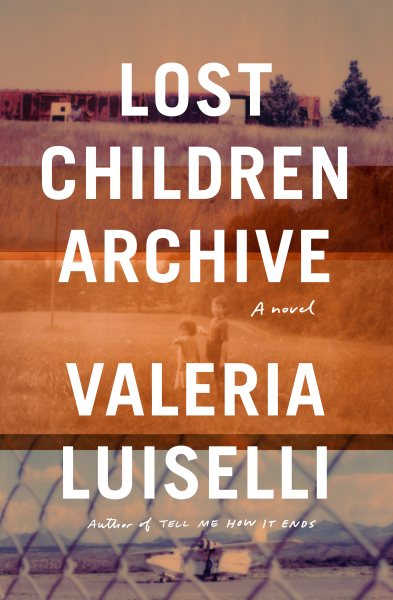By Lisa Newman. Special to the Clarion-Ledger Sunday print edition (February 3)
In Valeria Luiselli’s Lost Children Archive, the woman writes about the impact of the written word:
“When someone else’s words enter your consciousness like that, they become small conceptual light-marks. They’re not necessarily illuminating. A match struck alight in the dark hallway, the lit tip of a cigarette smoked in bed at midnight, embers in a dying chimney: none of these things has enough light of its own to reveal anything. Neither do anyone’s words. But sometimes a little light can make you aware of the dark, unknown space that surrounds it, of the enormous ignorance that envelops everything we think we know. And that recognition and coming to terms with darkness is more valuable than all the factual knowledge we may ever accumulate.”
 Lost Children Archive is that light in the dark.
Lost Children Archive is that light in the dark.
A nameless family of four are on a journey from their home in New York City to the Southwest. The husband and wife met while working on a documentary project to collect the sounds of New York and have been married for four years, each with a child from a prior relationship. At the project’s conclusion, they have the freedom to pursue their own interests. The man aims to document the echoes of Geronimo and the Apacheria, and the woman will document the sounds of the lost children at the U.S.-Mexico border. The boy is given a Polaroid and will document their travels. The girl will be too young to remember much of the journey and will rely on her brother. The family members remain nameless while the woman narrates: “I, he, she, we: pronouns shifted place constantly in our confused syntax while we negotiated the terms of our relocation.”
The wife worries that without the New York project their relationship seems disconnected and knows that their paths will inevitably diverge. The boy and the girl are bonded and their relationship grows stronger as they travel down the road, while the husband and wife grow more detached. Along for the journey are seven metal boxes, which serve as windows into each character, filled with literature, notebooks, clippings and scraps, photographs, poetry, and maps.
The theme of being lost echoes throughout the novel: the woman reads aloud from Elegies for Lost Children; the boy and the girl pretend to be lost and become lost themselves; the little red book is lost; the border children are lost as their plane takes off, scattering them across the country away from their families. Even names are lost: the family is nameless until they earn a name in the Native American tradition, the names on the tombstones of the Native Americans are lost, erased by time. The only named characters in the novel are a group of lost children who must scream their names into existence.
While the woman narrates much of the novel, the young boy narrates a section and falls into stream of consciousness after he loses the little red book. Here the novel alludes to Conrad’s Heart of Darkness in a section called Heart of Light, just one of many references to literature, music, and photography, including Carson McCullers’ The Heart Is a Lonely Hunter, Vladimir Nabokov, Virginia Woolf, The Collected Works of Billy the Kid by Michael Ondaatje, the poems of Emily Dickinson, Ralph Ellison’s Invisible Man, Jack Kerouac’s On the Road, William Golding’s The Lord of the Flies, and Sally Mann’s photography in Immediate Family.
The novel is a story of our time depicted in the story of the border children, but Lost Children Archive is also timeless as a coming of age story, a story about children finding their way in an adult-less world. Luiselli shows the vulnerability of human existence and frees the reader’s mind from political, cultural and societal influences and exposes what is truly at stake. Much like Harper Lee’s To Kill a Mockingbird, Luiselli releases the pressure of the adult world by presenting a child’s point of view to reveal the problem at its purest, most human point: “what happens if children are alone?”
Valeria Luiselli will be at the Eudora Welty House on Pinehurst Street on Thursday, February 14, at 5:00 p.m. to sign and read from Lost Children Archive. Lemuria has selected Lost Children Archive as one of our February 2019 selections for our First Editions Club for Fiction.


Comments are closed.